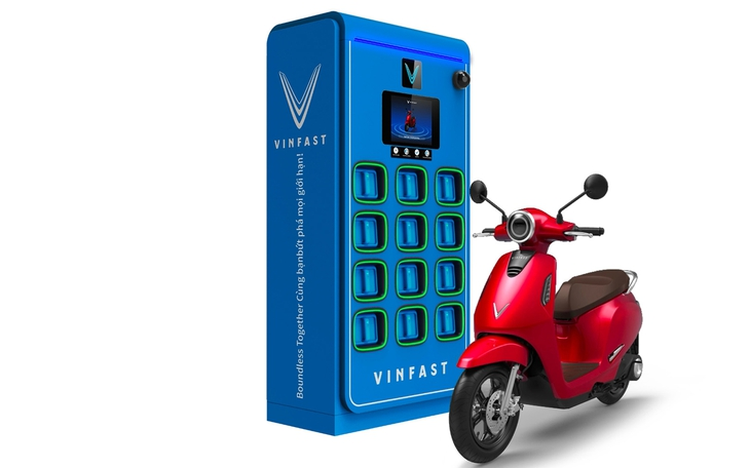
VinFast is the latest name to announce its entry into the battery-swapping race in Vietnam. Photo: VinFast
Previously, slow charging infrastructure was seen as a major barrier, but battery swapping is now considered a practical solution, saving users time and increasing convenience.
Despite the growing interest in electric vehicles, the rate of transition from gasoline-powered motorbikes to electric ones in Vietnam remains low, making investment in battery-swapping stations a risky bet for providers.
However, as the green vehicle segment continues to expand, battery-swapping infrastructure is expected to become a key factor in determining the success of electric motorbike brands.
VinFast
VinFast recently announced plans to launch battery-swappable electric motorbikes alongside the rollout of 1,000 battery-swapping stations starting in October.
The company aims to expand to 50,000 stations by the end of the year and eventually reach 150,000 stations nationwide.
According to VinFast, the new battery-swappable motorbike models will be largely similar to those already on the market, except for a redesigned battery compartment with two slots for removable batteries.
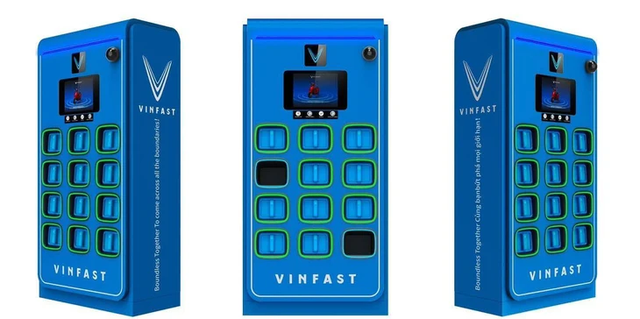
VinFast plans to establish 50,000 battery-swapping stations nationwide by 2025. Photo: VinFast
Each battery has a capacity of 1.5 kWh, offering a range of some 85km per full charge under ideal conditions.
The battery rental fee is set at VND200,000 (US$7.6) per month, and users still have the option to charge batteries at home.
If users choose to swap batteries at a station, the cost is VND9,000 ($0.3) per battery, including electricity costs.
Overall, the operational costs of electric motorbikes under this model are said to be on par with or even cheaper than traditional gasoline-powered bikes.
According to market research firm AMR Group, the average Vietnamese commuter travels 828km per month.
If using only swappable batteries, this would cost about VND274,000 ($10.4) per month, including rental.
In comparison, the fuel consumption rate of the Honda Vision, as reported by the Vietnam Register, is 1.82 liters per 100km.
For 828km, this amounts to about 15 liters of gasoline.
At the current E5 RON 92-II fuel price of VND19,460 ($0.7) per liter, the monthly fuel cost would be around VND292,000 ($11.1).
Honda Vietnam
Honda Vietnam is also introducing a battery-swapping service, currently available for its electric CUV e: model.
Unlike other companies, Honda is leveraging its network of authorized HEAD dealerships rather than building public stations.
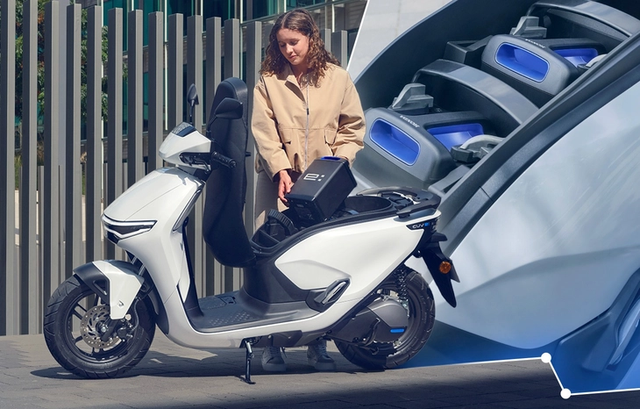
Battery swapping is currently only available at Honda’s authorized HEAD dealerships. Photo: Honda
At present, only 19 locations nationwide offer this service, and battery availability remains limited. Users must contact the dealerships in advance to confirm battery availability before swapping.
TMT Motors
Before VinFast’s announcement, TMT Motors had already unveiled plans to invest heavily in electric motorbikes and a public battery-swapping network.
The company intends to release five electric motorbike models next quarter and establish a network of charging and battery-swapping stations.
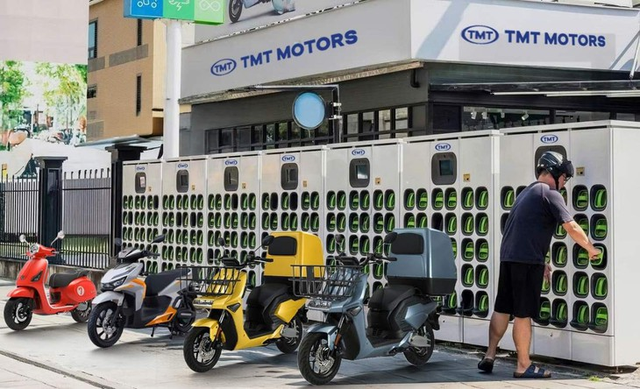
TMT Motors affirms that its battery-swapping stations will be fully automated. Photo: TMT Motors
However, details about the plan, including the number of stations, locations, service fees, and operation timelines, have yet to be disclosed.
What is known is that the stations will use 220V power, compatible with Vietnam’s existing grid, and each station will be equipped with five to 72 spare batteries.
TMT Motors also stated that the stations will be fully automated, requiring only one to two minutes to swap a battery without manual handling.
This marks TMT Motors’ first foray into the electric motorbike sector.
Previously, the company focused on commercial trucks and more recently expanded into passenger vehicles, with offerings such as the Wuling Mini EV, Bingo, and soon, the two-seat Nano S05 electric car.
Selex Motors
While not a major name in Vietnam’s electric motorbike market, Selex Motors focuses on logistics and delivery sectors and is among the earliest to implement an automated battery-swapping model in Vietnam.
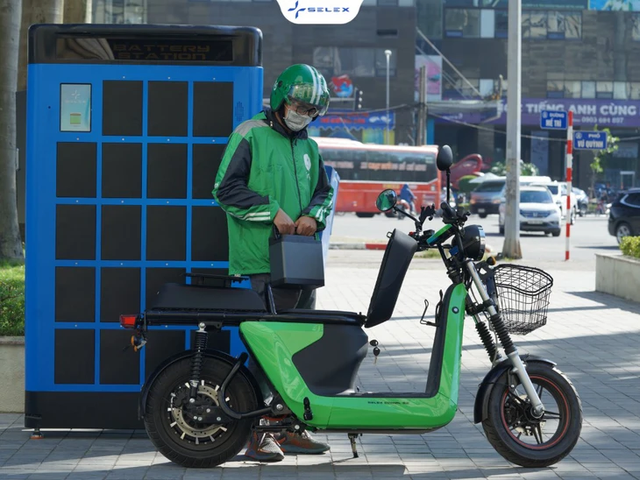
Selex Motors states that battery swapping takes just two minutes. Photo: Selex Motors
Since April 2023, Selex Motors has been installing swapping stations, with around 90 now operational.
These stations are primarily located in major cities such as Hanoi, Ho Chi Minh City, and Da Nang.


Max: 1500 characters
There are no comments yet. Be the first to comment.